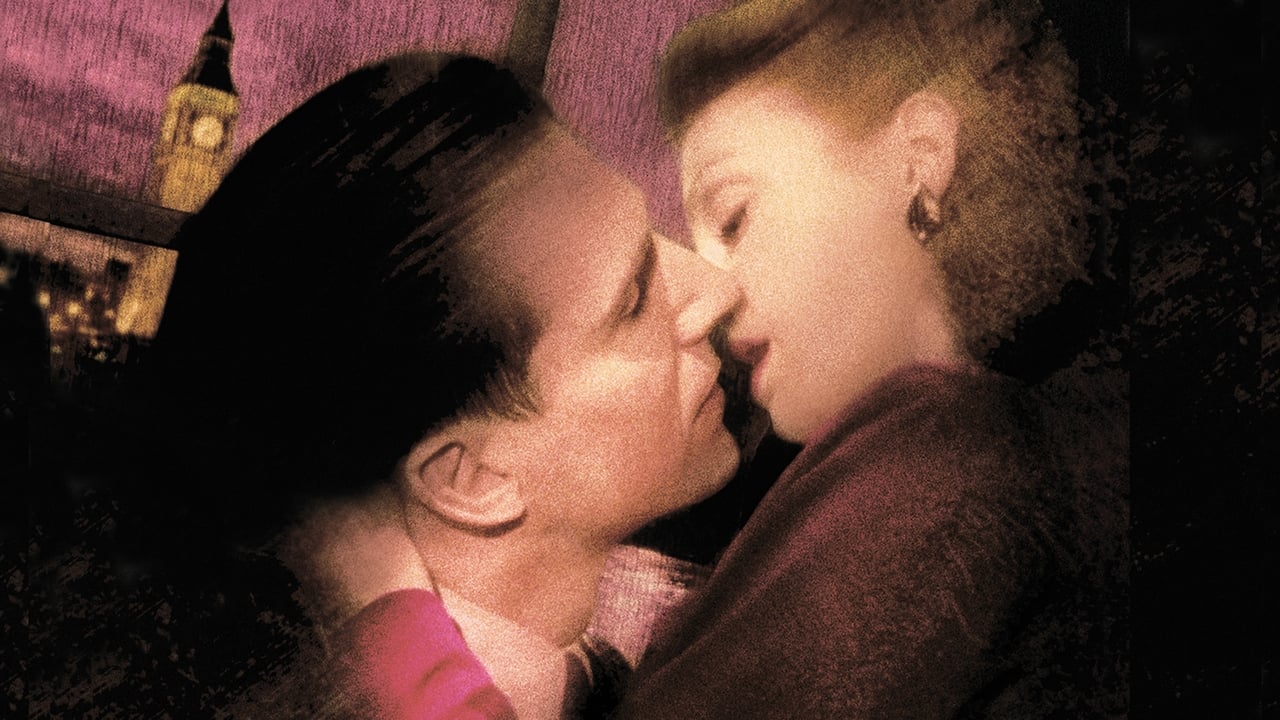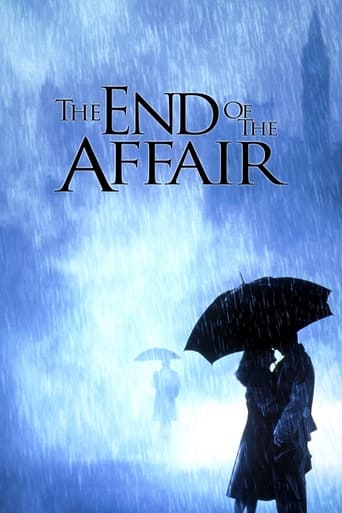

"I'm bored with my husband." "I'm bored with my life." "Let's have sex like teenagers." "Sweet."Welcome to "true love," _End of the Affair_ style. No indication of how the lead characters came to actually "love" each other, or what that "love" consisted of besides sex or creepy obsessive jealousy.The "twist" when it comes is underwhelming, to say the least, and involves retreading material that was dull the first time, and depends on the trite inability of the estranged hormone-weasels to actually TALK to each other. That's true love right there, folks.But hey, being a creepy obsessive stalker pays off, which is {sarcasm}an awesome moral to impart{/sarcasm}. Or rather, it would pay off for more than a brief interlude if it weren't for the glaringly obvious Chekov's gun being fired. The predictable denouement that follows rambles rather interminably, right to a saccharine beatification and cheap attempt at a metaphysical love/hate relationship with God. Meaningful, see?This movie wants to be a self-indulgent tragedy, but it's just tragic.
... View MoreI never thought the movie would turn out so well.I loved the acting of Juliane Moore and the simple fact that at the end of the movie you are left with a cherished memory of a movie.The way the story is plotted is also amazing. The story kind of unfolds from an ending - kind of keeping with the title.I loved the fact that the movie doesn't end cheesy.The chemistry between the lovers portrayed is absolutely amazing in that you take over the characters and experience their heated romance.Each character is well portrayed and the same for a solid purpose contributing to the story.Its a good inspiration for all who stand for what they believe in and exemplifies it correctly.
... View MoreAlthough I did see the original version of this Graham Greene novel on television it was several years ago and nothing has remained with me, possibly because of my aversion to both leads, Van Johnson and Deborah Kerr. Whilst I do admire Julianne Moore - never more so than in Vanya on 42nd Street - I can take or leave Fiennes and consider Neil Jordan little more than a journeyman with a Ken Loach type anti-English chip on his shoulder. So, one out of three going in. Despite the graphic sex scenes I detected no chemistry whatsoever between Fiennes and Moore, not an ideal situation when passion is presented as the driving force. Nor was there any serious attempt to replicate the mid-forties, for all the authenticity they may as well have updated it half a century and substitute an RTA for the German bomb. James Bolam provided an entertaining cameo but then disappeared. All in all not much to write home about.
... View MoreThere is much to like and admire in this: the script is well-turned, nuanced and may actually be better than the novel in many respects; the photography is perfect in detail and lighting and renders the characters ideally.The music is extremely effective and really underlines the film because it is elegiac; it echoes the past and because memory works in fragments it reminds strongly of those special moments which are gone.It is the direction and performance which give this film real depth and emotional engagement and for anyone who has ever had someone taken or lost, it will resonate.The three main characters are all solemn in their duty, in love, in pain and in regret. It is a technique that works powerfully and is in times with the war period and with the generation that saw life in dutiful and solemn terms. It gives a pitch of authenticity to the film and the casting has worked perfectly as Fiennes does solemn like no one else in the business, and he seems just right as a writer: introverted, analytical, abstract.It is a film,(a novel) and it offers the best of people and a connection to the mystical. The truth of the real affair that provided the basis to the story was not, however; that was debauched and narcissistic, but that fact is not important with this film.
... View More